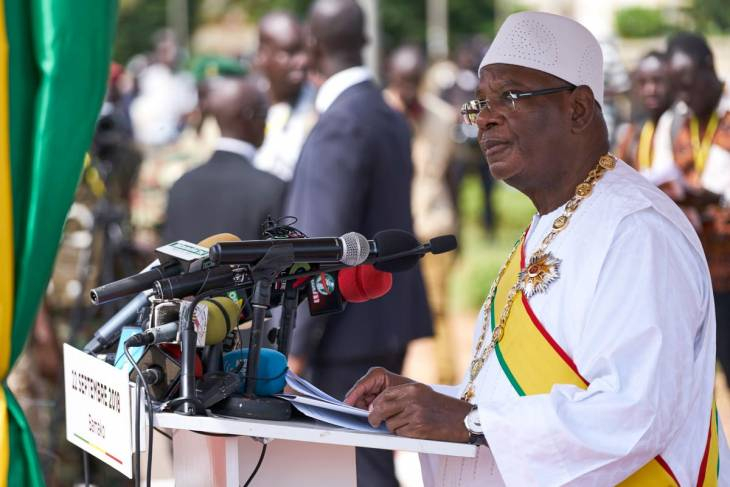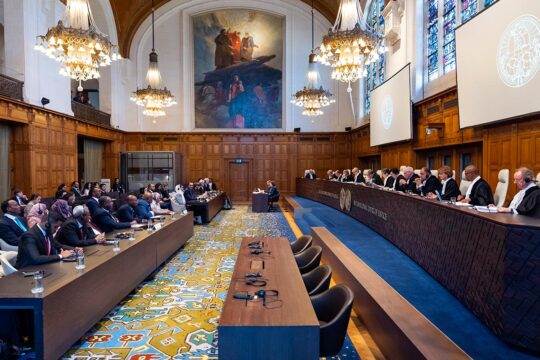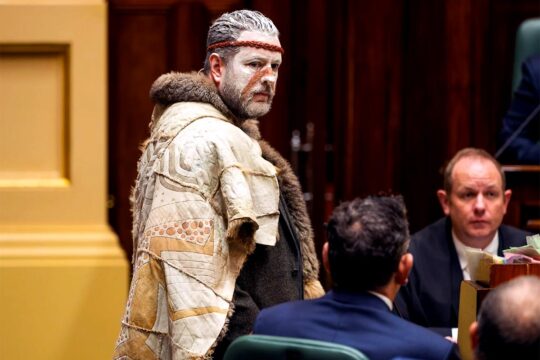Nearly 50 Malian organizations are up in arms. At a press conference on November 9 in Bamako, they declared that the “bill on national understanding” is a threat to peace, reconciliation and victims’ rights. The text, which was approved by the government in May, is to go before parliament in mid-December.
In a communiqué distributed at the press conference, civil society organizations said victims had not been involved in the drafting of the bill and that this "goes against established transitional justice practice". They say victims must be “fully involved in the creation of norms and mechanisms to respond to their suffering, if these are to have legitimacy”.
The bill was first announced in President Ibrahim Boubacar Keïta’s 2018 New Year message, in which he spoke of "special measures to stop prosecutions or offer amnesty for certain actors in the 2012 armed rebellion". The bill that civil society is now fighting provides for "exemption from criminal proceedings initiated or envisaged against persons who committed or were complicit (...) in crimes or offences (...) occurring in the context of events linked to the crisis that began in 2012". In 38 articles, it specifies that "war crimes, crimes against humanity, rape and any other crime deemed imprescriptible" are excluded from the scope of the text. This is in line with President Keita's New Year's message, which said his initiative was "neither a boost to impunity, nor an admission of weakness, nor a denial of victims' rights". The text stresses that "any steps taken to benefit from the proposed measures (...) are voluntary and individual".
Inadequate investigations
In addition to these special measures for individuals, the text provides for introduction of a National Day of Forgiveness, a National Reconciliation Week and the drawing up of an inclusive general history of Mali.
But for 47 Malian civil society organizations, the bill’s provisions on prosecution of people suspected of crimes against humanity, war crimes and other serious crimes are simply "inadequate". "We are not against national legislation, but it must come after judicial investigations," said Drissa Traoré, joint programme coordinator for the International Federation for Human Rights (FIDH) and the Malian Association for Human Rights (AMDH), at the press conference. "But investigations are struggling to make progress. We need to wait for the results of investigations to determine who has blood on their hands and who doesn't."
So civil society organizations think the government is putting the cart before the horse. They point out that the Truth and Reconciliation Commission charged with shedding light on the crisis is struggling to make progress owing to lack of resources and a climate of insecurity. Meanwhile, the International Commission of Inquiry on Mali has only just begun its work. This commission, set up under the Algiers peace accord and officially launched on October 22, is mandated by the United Nations "to investigate all war crimes, crimes against humanity, crimes of genocide, sexual crimes and other serious violations of international law, human rights and international humanitarian law throughout the territory of Mali". In such circumstances, the 47 organizations say there are fears that instead of ensuring facts relating to the crimes are brought to light, the law’s effect be to “close the door to all claims for justice, at the expense of victims' rights to truth and justice”.
"We will not bend"
What, then, does civil society want? The first thing is that the government withdraw its bill. Guissé Ramata, Executive Director of Amnesty International in Mali, says the proposed law "ignores victims’ rights and undermines ongoing efforts for justice and truth in Mali". Signatories of the communiqué also call for victims' associations and human rights organizations to be consulted and for their concerns be taken into account when drafting a new bill. They also call on the government to "make concrete commitments to the fight against impunity by guaranteeing efficient prosecution and investigation of the most serious crimes".
But do these activists have the means to make the government back down? "We will not bend," says Moctar Mariko, president of the Malian Human Rights Association, which plans other initiatives including a peaceful protest march and sit-ins in front of the National Assembly.
Civil society can also count on support from the political opposition, whose leaders came out against this bill as soon as it was announced at the beginning of the year by President "IBK". But the government says it is equally determined. "It is totally out of the question to think they can make the government back down through petitions," Prime Minister Soumeylou Boubèye Maïga told a public gathering in Bamako the day after the press conference. "We cannot abandon this law," he continued, saying that the government "has followed all the procedures”. He said Mali was following the example of other countries "that have experienced the same situation" and that it was impossible "to organize trials for hundreds of thousands of people". "We will exempt from prosecution all those who did not commit war crimes and violence against women during the crisis," he concluded.







